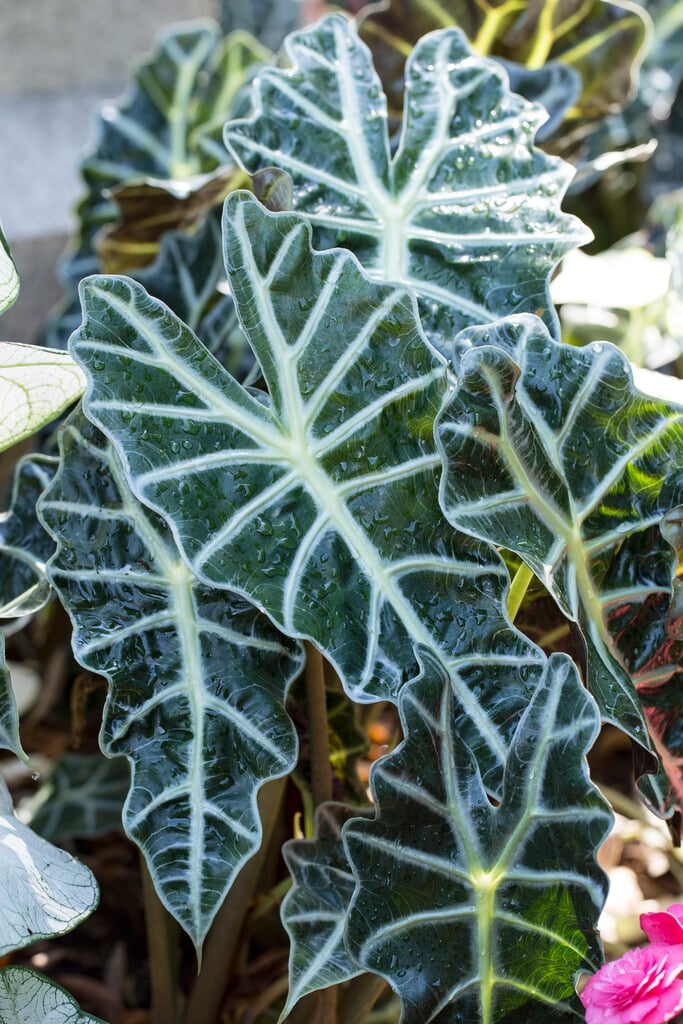Alocasia × amazonica
African mask
A robust evergreen rhizomatous perennial to 1.5m tall, with narrowly arrow-shaped, wavy-edged leaves to 60cm long, dark green with silver veins above, purple beneath
Size
Ultimate height
1–1.5 metresTime to ultimate height
5–10 yearsUltimate spread
1–1.5 metresGrowing conditions
Moisture
Moist but well–drainedpH
Acid, NeutralColour & scent
| Stem | Flower | Foliage | Fruit | |
| Spring | Green Grey Silver Purple | |||
|---|---|---|---|---|
| Summer | Green Grey Silver Purple | |||
| Autumn | Green Grey Silver Purple | |||
| Winter | Green Grey Silver Purple |
Position
- Partial shade
Aspect
West–facing or East–facing
Exposure
Sheltered Hardiness
H1ABotanical details
- Family
- Araceae
- Native to GB / Ireland
- No
- Foliage
- Evergreen
- Habit
- Bushy
- Potentially harmful
- TOXIC if eaten, skin/eye irritant. Wear gloves and other protective equipment when handling. TOXIC to pets - see the HTA guide to potentially harmful plants for further information and useful contact numbers
- Genus
Alocasia are robust evergreen rhizomatous or tuberous perennials with large, usually peltate, leaves with conspicuous veins; insignificant flowering spathes may be followed by orange-red fruits
- Name status
Correct
How to grow
Cultivation
Grow indoors in a peat-free houseplant compost with added perlite, in bright, indirect light. Water freely and apply a general liquid fertiliser every 2-3 weeks from spring to autumn. Provide high humidity by placing the container on a tray of moist gravel or pebbles. Reduce watering to a minimum in winter, and keep above 15°C. See Alocasia for further advice
Propagation
Propagate by seed at 23°C (73°F) as soon as ripe. Propagate by division in spring or summer. Propagate by stem cuttings in spring
Suggested planting locations and garden types
- Patio and container plants
Pruning
No pruning required
Pests
May be susceptible to glasshouse red spider mite and mealybugs
Diseases
Generally disease-free
Get involved
The RHS is the UK’s gardening charity, helping people and plants to grow - nurturing a healthier, happier world, one person and one plant at a time.
